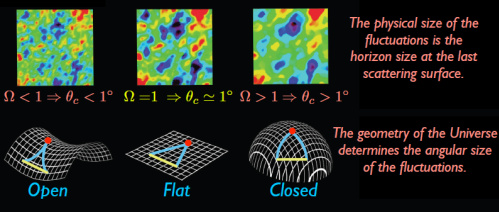This question comes out of curiosity to find the arguments of those who make both sides of the word "or". If this is a false dichotomy I would like to hear the other options to this as well.
A few atheists have been making a similar argument to "the universe is infinite" in this very forum when discussing the Kalam Cosmological Argument, which is the reason for this thought experiment if I may put it that way. Now before anyone derails the thread saying "this is a strawman" let me make it clear that this is not an atheists position in general, but a few do make this positive claim, thus what are the philosophical or/and scientific reasonings for this?
Some care is required here. The universe can be spatially finite or infinite and be temporally finite or infinite.
The spatial infiniteness of the universe is usually not relevant for the Kalam argument. The issue there is whether the universe is *temporally* infinite into the past. Well, *one* of the issues there.
In other words, one relevant issue with the Kalam argument is whether time itself can be infinite into the past. That is a *very* different question than whether the universe is spatially infinite (infinite in volume).
The main piece of information about the *temporal* finiteness of the universe is the Big Bang. Under general relativity, it is impossible to extend the notion of time previous to the Big bang, and time is finite into the past. In this case, there would literally be no such thing as 100 billion years ago.
The problem is that we *know* that quantum effects will become relevant at some point in describing the 'early universe' (the early stages of the current expansion) and general relativity simply doesn't take such things into account. And, when we try to extend it to take quantum mechanics into account, all sorts of difficulties are found.
MOST quantum theories of gravity have the 'singularity' of the Big Bang 'smoothed out' and it becomes more of a 'bounce'. In such theories, time *can* be extended previous to the BB and would likely be infinite into the past. But some *other* theories of quantum gravity do NOT have that degree of smoothing and time CANNOT be so extended, making it finite into the past.
The problem is that we don't know which theory of quantum gravity is correct and we have very little data to determine this.
So, even on the issue of whether time is finite or infinite into the past, we simply *do not know*. The data we have supports both possibilities.
My personal guess is that time *is* infinite into the past, but that is only a guess. Nothing more.
I would also add that there are many other problems with the Kalam argument, including hidden assumptions concerning causality and the uniqueness of uncaused events. But that is another discussion.

